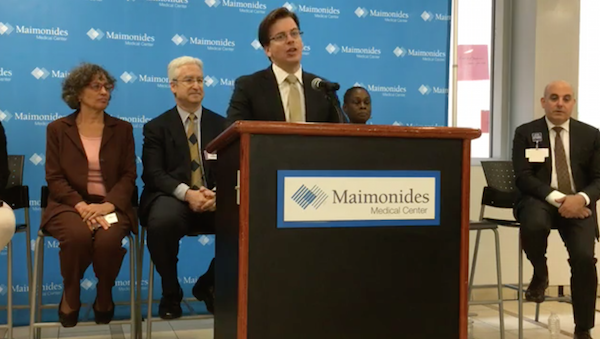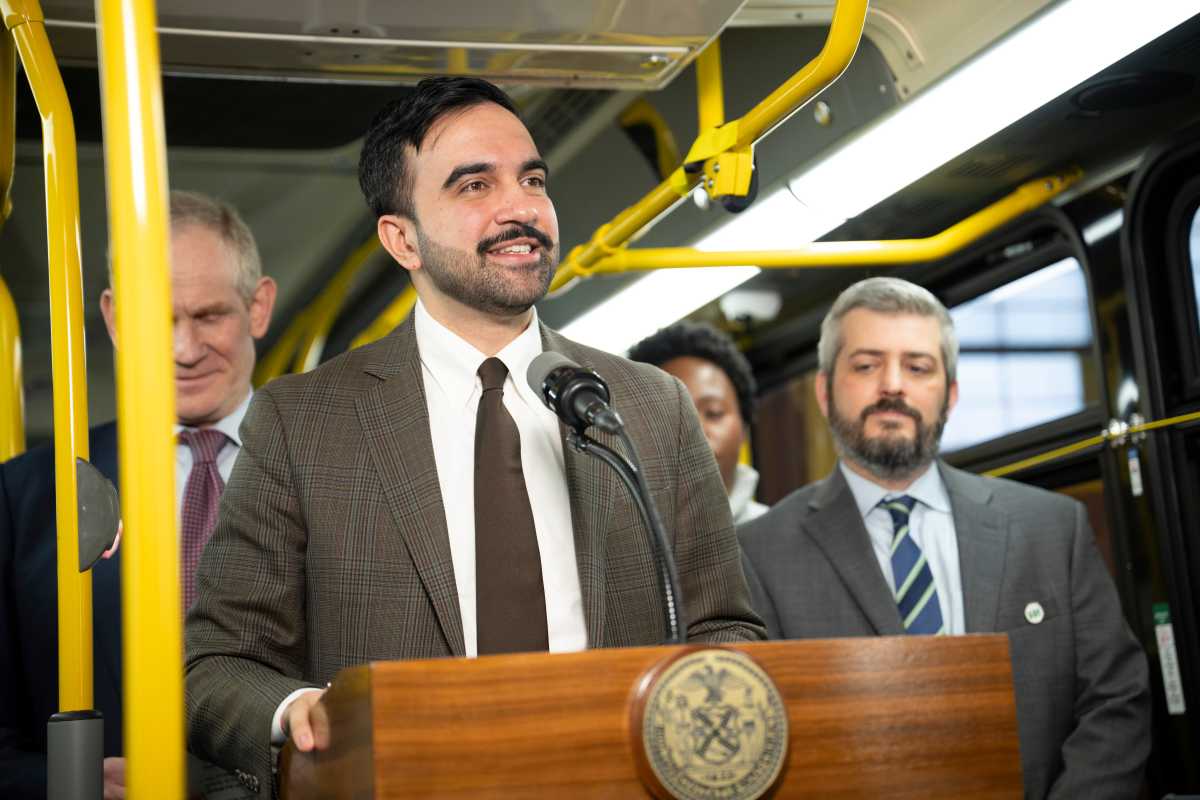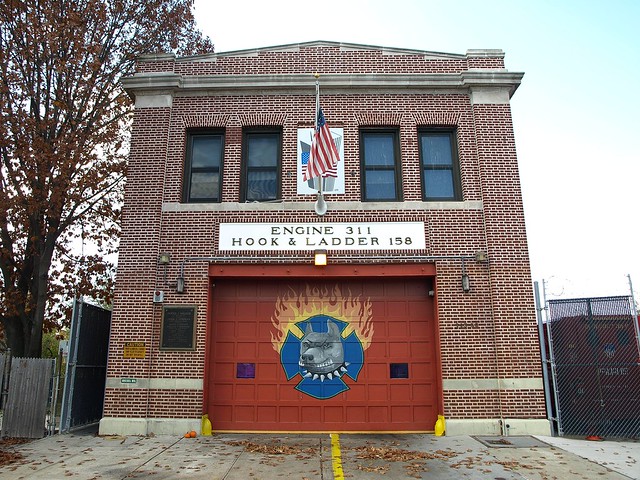Maimonides Medical Center in Bensonhurst/Borough Park/Sunset Park has joined three hospitals in the Bronx, Staten Island, and Manhattan in tackling the opioid epidemic via a new city program that offers expanded peer-counseling and support program to survivors of opioid overdoses.
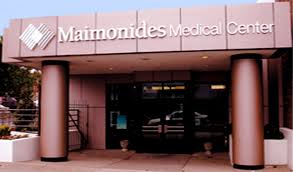 Dubbed “Relay,” the program sends a Wellness Advocate — peer counselors who have themselves struggled with opioid addiction and come out the other side — to the hospital emergency department within an hour of a patient being admitted. The counselor then keeps in touch with the patient for up to 90 days, offering support, guidance in navigating treatment options, and help in accessing harm reduction and other city services, including emergency housing and food stamps.
Dubbed “Relay,” the program sends a Wellness Advocate — peer counselors who have themselves struggled with opioid addiction and come out the other side — to the hospital emergency department within an hour of a patient being admitted. The counselor then keeps in touch with the patient for up to 90 days, offering support, guidance in navigating treatment options, and help in accessing harm reduction and other city services, including emergency housing and food stamps.
“Our goal is to bring overdose fatalities down by 35 percent in the next five years,” said Dr. Herminia Palacio, deputy mayor of the Department of Health and Mental Hygiene (DOHMH). “This program is desperately needed in Brooklyn. These are peer wellness advocates available 24/7, 365 days a year, to counsel patients when they need it. People who have lived it and walked this walk, saying “I’m here and I’m by your side.” This is something we can offer with compassion and science. Recovery is tough and no one should have to go through it alone.”
Thus far, the program has served 92 participants at the other three hospitals — all based in neighborhoods with high rates of opioid overdoses. A total of 10 hospitals will be part of the program by 2019, after which $4.3 million in annual funding from the DOHMH will be provided.
That funding commitment stands in contrast to the federal government’s hesitation to fund any health outreach, prevention, or treatment programs for opioid addiction, despite having a committee exploring the issue.
The DOHMH/Maimonides announcement came on the same day that President Donald Trump declared the opioid epidemic to be a public health emergency, and stated his intent to promote “really tough, really big, really great advertising” to encourage people to never start taking the drugs to begin with.

“People still associate drug addiction with laziness, abuse, and other ways that don’t acknowledge the humanity of the people they are talking about,” said NYC First Lady Chirlane McCray. “But these are real people, real New Yorkers with goals, families, and dreams. They’re dying at alarming rates and the communities around them hurt so much. We must treat them humanely. just as we would treat anyone with a chronic disease. That’s why i’m proud to expand programs like Relay. What they need in that moment is not blame and punishment, but treatment in harm reduction, methodone, and people to talk to like our wellness advocates.”
Brooklyn’s inclusion in Relay comes as no surprise. Between 2010 and 2012, the borough had the most number of fatal drug overdoses of all five boroughs, with 145 deaths in 2010, 158 deaths in 2011, and 179 deaths in 2012.
Those numbers have only increased since then. As of February 2017, data from the city Medical Examiner’s office and DOHMH has Brooklyn tied with the Bronx for the most opioid deaths, at 26 percent each of the city’s overall count.
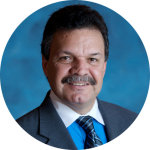
These numbers explain the near universal support of the Relay program at Maimonides by local elected officials, including Assemblymember Robert Carroll (D-Park Slope, Windsor Terrace, Flatbush/Ditmas Park, Borough Park), who described it as “a most admirable cause,” and Assemblymember Felix W. Ortiz (D-Sunset Park, Borough Park, Red Hook), who cited the heroin and opioid epidemic’s national reach as even more reason to tackle it at home while “helping those in the most need of assistance.”
The program also has the full support of Maimonides and its Emergency Department, whose Chair of Emergency Medicine, John Marshall, said that Relay “fills important piece of our spectrum of care. Sometimes it’s an overdose, but often it’s a chronic pain issue they didn’t anticipate would lead to an addiction to the painkillers.
“The opportunity to get on treatment, as well as to certify over half of our physicians out of the ED, is important,” Marshall added. “Now we don’t just treat the issue, but put them on a path toward wellness.”
A majority of deaths citywide — 78 percent — were of men. Most were between the ages of 25 and 54, with the most — 27 percent — falling in the 45-54 year old range. And most of those who died were white (43 percent), followed by those categorized as Latino (31 percent) and black (21 percent).
The Relay program is under HealingNYC, the City’s comprehensive initiative to reduce opioid overdose deaths by 35 percent over five years.


